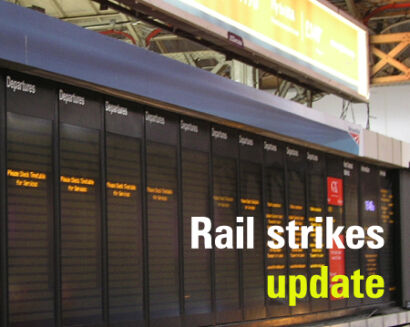Drivers belonging to ASLEF at three more train operating companies have voted for strikes in the continuing dispute over pay.
The votes were held at Chiltern Railways (majority in favour 92.1 per cent), Northern (96.6 per cent) and TransPennine Express (97.1 per cent). Turnouts were all over 80 per cent.
ASLEF has already obtained votes in favour of strikes at nine other passenger operators, and a strike was held on 13 August. However, deals have been agreed at Merseyrail, MTR Elizabeth line, PRE Metro Operations, which runs the Stourbridge Town branch, Eurostar and ScotRail, while rises have been obtained at four freight operators – DB Cargo, Freightliner Heavy Haul, Freightliner Intermodal and GB Railfreight. The union also said it was in ‘productive negotiations’ at Direct Rail Services and Transport for Wales.
ASLEF general secretary Mick Whelan said: ‘Strikes are always the last resort. But you can see from the votes – and the turnouts – just how angry our members are. These are the men and women who moved key workers and goods around the country during the pandemic, yet have not had a pay rise since 2019.
‘With inflation running at north of 10 per cent, and set to go much higher, several train companies are saying that they want their drivers to take a real terms pay cut. Their attitude is “suck it up”, and that stinks.
‘We now have mandates at twelve companies. After our one-day strike on Saturday 13 August the Rail Delivery Group asked for talks. Those talks were strained, but quite constructive. There were no concrete proposals but dialogue will, we hope, continue.
‘That’s why we are calling on the companies to come to the table with a proper proposal to help our members, their drivers, buy this year what they could buy last year. That is the way to prevent another strike and all the disruption that causes. The ball is now firmly in the train companies’ court.’
The Rail Delivery Group said: ‘We want to give our people a pay rise, but to fund it unions must recognise that as an industry that has lost 20 per cent of its revenue, we can either adapt or decline.
‘Instead of causing further disruption to passengers and businesses, we urge the ASLEF leadership to continue talks so we can change our services to meet new travel patterns, improve punctuality and secure a bright, long-term future for our people.’


